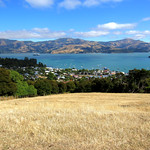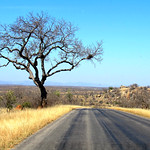|
It's safe to say that humans are a powerful force on the Earth. We've stretched our influence far and wide, both in our own social structures and the physical ones we've built atop the natural world. It can be difficult to remember that we're a part of this massive planetary balancing act of systems since we seemingly bend them to our will, but it would be ill-conceived to think of that influence as control.
Beyond that influence, I was reminded this month of a bias humanity has. We tend to like the concept of an "untouched" nature. Not untouched by anything though, but humans in particular. Going even further, we're biased toward an appreciation of nature not touched by the people who brought modern civilization. It's easiest to think of these people as the European colonizers. If they or their descendants haven't touched it, it's considered untouched by humans. Along with this bias comes another more dangerous one however. When we categorize nature by its proximity to humans, deciding that nature adjacent to humanity is lesser nature, we have a tendency to take less care of it. We opt to care more about "true nature" far from home. We can think that's the nature worth saving, worth protecting. Yet, by ignoring our neighboring ecosystems, we have a slow but steady impact on nature far away. Let's explore this together.
0 Comments
|
AuthorPrismatic Planet wants to get excited for the planet, raise awareness of its inhabitants, and get smarter about Earth. Archives
July 2024
Categories |





 RSS Feed
RSS Feed